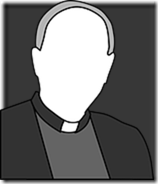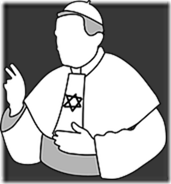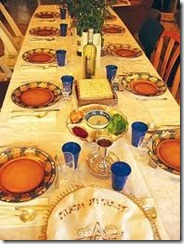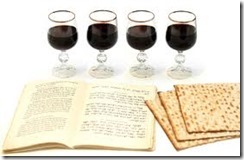While at Malice, I was on a panel about Religion in Mysteries. It’s a topic I really hadn’t thought about before. So how do mystery writers handle this subject? Fellow panelists were authors whose protagonists included a hospital chaplain (Mindy Quigley), a minister (Stephanie Jaye Evans), a rabbi (Ilene Schneider), and a Scotland Yard Detective (Anne Cleeland).
What made my series different was that my sleuth Marla is a hairdresser. As I told the crowd, women see their stylists a lot more often than their clergymen. They willingly confide in their hairdressers and overhear juicy conversations in the salon, whereas people confess to priests or to chaplains on their deathbeds. So while people approach the ministry to be absolved for their sins, Marla has to worm their secrets out of them. Thank goodness she’s a skilled conversationalist.
The moderator posed some interesting questions. If those other protags were not clergy, would it matter to the series? And if my heroine was more religious, how would that change things? Ask yourself this question about your main character. In Marla’s case, it would make a big difference. She’s not particularly religious but she has a basic belief in Judaism and follows the traditional holidays. As the series progresses, so does her romantic relationship with Detective Dalton Vail who isn’t Jewish. This probably wouldn’t happen if she were more devout. They enter into an interfaith marriage where they respect each other’s traditions and beliefs.
Here’s another question to pose to your characters: How does their view of religion color their view of the world? Marla’s outlook is more expansive. She encompasses other viewpoints with tolerance and understanding. A priest or rabbi’s attitude will be focused on their own kind, while a hospital chaplain has to minister to patients of all faiths.
What role does religion play in your books? Is it a central or peripheral part of your plot? Does religion influence your protagonists’ search for justice?
How important are your protagonists’ careers to the stories? Would the slant be different if they were police professionals or hairdressers or members of the clergy?
Do holidays play a role in your stories? I’ve had Passover, Thanksgiving, Hanukkah, and New Year’s in my series, if you count the book I just turned in. Holidays in my books are where friends and families gather and where their ties are strengthened. But you could easily have a contentious family gathering where tensions escalate instead.
Perhaps this thematic content is something you haven’t considered before. But as a writer, your views of religion and sense of right from wrong color your perceptions. Do they influence your protagonist’s view as well?
Read my report on Malice 2015 here: Malice 2015
Contest Alert!
Enter May 7– 21 to win a signed copy of bestselling author Joanna Campbell Slan’s historical mystery, Death of a Dowager, and a $15 FANDANGO gift card to enjoy a movie this summer. Two runners-up will each win an ebook copy of Hair Raiser (Bad Hair Day Mystery #2). http://nancyjcohen.com/fun-stuff/contest/






My protagonists are rarely religious…so far, they’re either atheists or agnostics. But other characters are.
I think that since my novels deal with vigilantism and missing children, I would be remiss if I avoided the religious aspects of moral and ethical questions.
Although I was raised in a religious family, I’m definitely not a religious scholar, so I consult with the clergy in various faiths when creating characters who believe in things I do not.
I think the challenge is to bring in religious issues in a way that doesn’t preach. I’m not crazy about C.S. Lewis, for example, or stories that have a way-too-obvious moral. I’d rather have the reader make his or her own decision about what the author meant to say in the story.
All good thoughts, Sheryl. I agree with you on avoiding preachy stories. As for ethical concerns, many of us learn right from wrong at Sunday school, no matter what our religion.
I forgot to mention that in Died Blonde, Marla consults a psychic at Cassadaga, Florida. This person reconnects her to her roots by reminding Marla of her Bat Mitzvah Torah portion: “Justice, justice, shall you pursue.” Thus she realizes that the search for truth is part of her destiny. In a way, it brings a spiritual element into the series. So this is my answer to the question of how religion might influence your protagonist’s pursuit of justice.
I love this article, it made me consider the faith of the characters I love and how that could change the plot because of how they work to solve the mystery. Thank you for writing this, I know I’ll be pondering on it more as I read my favorite series .
Glad this article made you consider the topic, Amy. It gives a different view of mysteries.
I find religious characters and themes to be most effective when they add true dimension to inner and external conflict. For example, in THE EXORCIST, the young priest battling a crisis of faith at the same time he is battling Satan. It must be difficult to write fully dimensional religious characters in a way that draws in most readers. In a cozy mystery, it would be easy to fall into the trap of adding a religion to a character in a superficial way, like a hair color. That would not be good.
Interesting topic, Nancy. Thanks for opening this discussion!
If you think about it, religious holidays present a great occasion for families to get together and either battle or cement their relationships. Or it can be a scene for people to review the suspects in a mystery. I use holidays a lot for this purpose.
Mysteries that have religion in them gives an exposure to other faiths and is a great way to learn.
Yes, this is true, Margaret. I try to explain the Jewish customs in my stories. I even had to look up the meaning of wedding rituals for Shear Murder, so I learned something new myself!
Theology and philosophy are more important than business or pleasure or fame. I’ve always been fascinated with the question of how to live a good life, so it’s always part of my books. I can’t help it. I wouldn’t want to help it.
But those things have to be woven into a real story. A novel is not a lecture (apologies to Ayn Rand). So it’s always character first, and how these issues run naturally through the conflict.
Most definitely, this aspect of a character must be woven into the story as part of his personal tapestry. It’s part of who he is, and that background and belief system will color his perceptions.
Exactly, Jim. Am confronting this issue head on as I dive back into my WIP Louis series book. I have a murdered clergyman and the role of faith is a thematic thread. But my protag Louis has only the vaguest memories of the black Baptist church of his childhood Mississippi and was indifferent to his foster mother’s attempts to bring him into the Presbyterian fold. So this new case is fertile ground for him to explore. But as you say, it is only a hum of background music to the story. The worst thing you can do is go didactic and preachy about religion. Or alot of subjects for that matter. I am constantly aware of this as the chapters flow.
Excuse typos in this: Am trying to break in contact lenses today, which I have never worn before. The doc says my brain will retrain itself. Talk about faith…
I loved Harry Kemelman’s Rabbi series, and Faye Kellerman’s Peter Decker/Rina Lazarus series. There’s a lot to be learned, but it’s all woven into the story, and there’s never at attempt to proselytize (a lot to do in part because Judaism doesn’t believe in it). In fact, sometimes I think I learned more from Rabbi Small than from my own Sunday School experiences. My Mapleton books have a Jewish family, but aside from a mention of the Holocaust in the first book, the ‘religion’ aspects tend to revolve around food–Rose is not-so-loosely patterned after my paternal grandmother, who would as if you’d eaten before she even invited you into her home. The only time I heard her swear was when someone refused seconds. And since I don’t have any experience with other religions, I tend to keep things very generic if they show up on the page at all. In fact, my crit partners pointed out I had a wake happening out of order.
Ilene Schneider, who was on the panel with me, also writes a rabbi series. The main points she made were that clergy members are human. They have faults and interests like anyone else. But they are better placed to learn a person’s secrets. As for food, this is an excellent way to bring your protagonist’s heritage into the story. Many of us have traditional foods we grew up with that are part of our history. Marla, for example, will go into a deli and order a bagel with smoked salmon. It’s another way of showing character.
Good questions, Nancy. My coauthor Lynn Sholes and I wrote a 4-book series that dealt heavily with religious themes. Our main character, Cotten Stone, was the daughter of a fallen angel and her love interest was a priest. The antagonist in all the books was a character we called “the old man” who happened to be Satan. These are apocalyptic thrillers where the survival of the world is always at stake. But even though one of the main characters is a priest, we never pushed any form of religion on the reader, only the eternal battle between good and evil. I don’t want to be preached to in a novel, and I’ll never do it as a writer.
I’ve read your work, Joe, and they are epic struggles of good versus evil no matter what the reader’s belief system. It doesn’t matter if you believe in angels or demons. People can be evil, and we want our lives to have meaning. Your books work on an elemental level.
My novel takes place in blue collar Boston in the early 1960s, a place & time where/when most of that population was Roman Catholic. That is the background of my characters, because Roman Catholicism reflected local culture, tradition, and commonality–everybody was baptized Catholic and identified as such–whether or not they actively practiced their religion.
This was true for your story’s time and place, so that is logical for most people to have a similar background. But I’m wondering about the people in your world who did not fit into the mold and how they were treated. That would make an interesting twist.
Nancy, great topic for discussion.
I like Kathryn’s and Jim’s comments on weaving the faith and the beliefs of the characters into the fabric of the story. And in Joe’s Cotton Stone’s series, the religious basis creates the ultimate conflict.
In the series I ‘m working on, I ramp up the tension by placing my protagonist and his battle with a violent antagonist in the setting of a peace community. The juxtaposition creates a stark contrast and a lot of inner conflict.
Steve, setting a violent confrontation within a peace community presents a great built-in conflict. Wasn’t there a similar basis in the movie that takes place at an Amish community, where a killer chases after the hero/heroine–can’t remember the name of it.
Witness
I set one of my books–Keeper of the Rings–on another planet where everyone believes in the God, Lothar. He’s responsible for the world’s beneficial climate, but disruptions are occurring. Then someone steals the sacred horn used to reset Lothar’s climactic cycles. Global meltdown threatens unless the horn is recovered. Members of the 12 member high priesthood are suspects. It’s a scifi mystery inspired by the question, What if you learned that everything you believed in proved to be false? Would you keep the revelation to yourself, or would you share it?